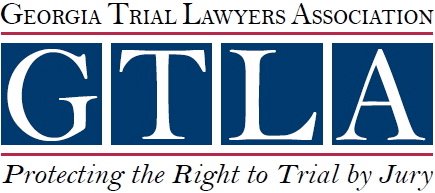Plant explosions are catastrophic events that can lead to severe injuries, loss of life, and extensive property damage. When these unfortunate incidents occur, the people affected are often left with not only physical and emotional trauma but also the need to navigate a complex legal process to obtain compensation for their losses. Understanding the steps involved in filing a claim after a plant explosion in Georgia is essential for anyone seeking justice and financial recovery.




Plant explosions can happen for various reasons. Sometimes, it is due to equipment failure, negligence, or even unsafe working conditions. In the aftermath, victims may face overwhelming medical bills, lost wages, and other hardships. Fortunately, Georgia’s legal system allows individuals to pursue compensation, but it requires a clear understanding of the process. At, Princenthal, May & Wilson, LLC , we are here to guide you through the legal process and help you navigate the complexities of your case.
Understanding Liability in Plant Explosions
When a plant explosion happens, the first question that often arises is who is responsible. Determining liability is a crucial step in the process of filing a claim. Several parties could be held accountable for a plant explosion, depending on the circumstances. These might include the plant owner, manufacturers of faulty equipment, contractors, or even employees who may have caused the accident through negligence.
In Georgia, the law requires that the responsible party be identified and held accountable for their role in the explosion. Proving liability involves collecting evidence, such as maintenance records, safety inspection reports, and witness testimonies. Often, an investigation is needed to determine what caused the explosion and whether any regulations were violated. For example, if safety protocols were ignored or defective equipment was used, this could point to negligence, making it easier to hold the liable party responsible.
Filing a Personal Injury Claim
If you have been injured in a plant explosion, filing a personal injury claim is one of the primary ways to seek compensation for your damages. In Georgia, personal injury claims allow individuals to recover costs related to medical treatment, lost wages, pain and suffering, and other damages resulting from the explosion.
The process begins with gathering the necessary documentation to support your claim. This includes medical records, receipts for expenses, and proof of lost income. In addition, any evidence that helps demonstrate the responsible party’s liability will be essential in building a strong case.
Once you have gathered this information, the next step is to file your claim within the time limits set by Georgia’s statute of limitations. In Georgia, the statute of limitations for personal injury claims is generally two years from the date of the explosion. However, it is important to act quickly because gathering evidence and negotiating with insurance companies can take time.
Workers’ Compensation Claims for Employees
If you were an employee injured in a plant explosion, you may be entitled to workers’ compensation benefits in Georgia. Workers’ compensation is a system designed to provide financial support to employees who are injured while performing their job duties. This system helps injured workers cover medical expenses, lost wages, and disability benefits without needing to prove that the employer was at fault for the explosion.
In Georgia, most employers are required to carry workers’ compensation insurance. If you are injured in a plant explosion, your employer should guide you through the process of filing a workers’ compensation claim. However, some employers or their insurance companies may try to minimize the benefits you receive, making it difficult for you to recover fully. It is crucial to be aware of your rights under Georgia’s workers’ compensation laws and seek legal guidance if your claim is denied or if you feel that you are not receiving the benefits you deserve.
Third-Party Claims in Plant Explosions
In some cases, workers injured in a plant explosion may be able to file a third-party claim in addition to a workers’ compensation claim. A third-party claim is filed against someone other than your employer who may be responsible for the explosion. This could include equipment manufacturers, contractors, or other entities involved in the operations of the plant.
Third-party claims are different from workers’ compensation claims because they allow injured workers to seek compensation beyond what workers’ compensation provides. While workers’ compensation benefits are limited to covering medical expenses and a portion of lost wages, a third-party claim can seek compensation for pain and suffering, emotional distress, and other non-economic damages.
Filing a third-party claim can be complex, as it requires proving that the third party was negligent and that their actions or inaction directly contributed to the explosion. A thorough investigation into the explosion is necessary to gather evidence that supports your claim.
Dealing with Insurance Companies
After a plant explosion, insurance companies often become involved, either through workers’ compensation claims or personal injury claims. It is important to remember that insurance companies are businesses, and their primary goal is to minimize payouts. They may attempt to offer a settlement that does not fully cover your damages, or they may deny your claim altogether.
Hiring a Personal Injury Attorney How Long Will a Personal Injury Case Take?Related Videos
When dealing with insurance companies, it is important to remain cautious and not accept any settlement offers without fully understanding the extent of your injuries and future needs. Sometimes, injuries from a plant explosion may not be immediately apparent or may worsen over time. Accepting a settlement too early could prevent you from receiving the compensation you need for ongoing medical care and other long-term damages.
In Georgia, insurance companies are legally obligated to act in good faith when handling claims. However, this does not always prevent disputes from arising. If you believe that the insurance company is not treating you fairly, it may be necessary to seek legal representation to negotiate a fair settlement or take the case to court.
Wrongful Death Claims
Tragically, plant explosions can result in fatalities. In Georgia, if a loved one has died as a result of a plant explosion, the surviving family members may be able to file a wrongful death claim. Wrongful death claims are meant to compensate the family for their loss and to hold the responsible party accountable for their actions.
Filing a wrongful death claim involves proving that the death was caused by negligence or a wrongful act. This may include showing that safety regulations were ignored, that faulty equipment was used, or that the plant owner failed to take reasonable precautions to protect workers or visitors.
In Georgia, wrongful death claims can be filed by the spouse, children, or parents of the deceased, depending on the circumstances. Compensation in these cases may include funeral expenses, lost wages, and the loss of companionship and support.
Representative Cases
Navigating Georgia’s Legal Process
Filing a claim after a plant explosion involves navigating Georgia’s legal process, which can be overwhelming without proper guidance. Whether you are pursuing a personal injury claim, workers’ compensation, or a wrongful death claim, it is important to understand the steps involved and to have all the necessary documentation in place.
The legal process typically begins with filing a formal complaint in court or with the appropriate agency, such as the Georgia State Board of Workers’ Compensation. Once the complaint is filed, the discovery process begins, during which both parties gather evidence and information to support their claims.
In many cases, plant explosion claims are resolved through settlement negotiations. However, if a settlement cannot be reached, the case may go to trial, where a judge or jury will determine liability and the amount of compensation owed to the victim.
Throughout this process, legal representation is highly recommended to ensure that your rights are protected and that you are able to pursue the compensation you deserve. The laws surrounding plant explosions can be complex, and having knowledgeable legal assistance can make a significant difference in the outcome of your case.
Why Legal Representation Matters
Plant explosion claims involve various legal challenges, from determining liability to negotiating with insurance companies. Having legal representation ensures that you are not taken advantage of by large companies or insurers and that your claim is thoroughly investigated.
Attorneys who understand the intricacies of Georgia’s legal system can help you navigate the process and build a strong case that maximizes your chances of obtaining fair compensation. Whether you are dealing with medical expenses, lost wages, or the devastating loss of a loved one, having a skilled legal advocate on your side can provide peace of mind and allow you to focus on healing.
If you or a loved one has been affected by a plant explosion in Georgia, it is important to take immediate action to protect your rights. The legal team at Princenthal, May & Wilson, LLC is here to guide you through the legal process and help you pursue the compensation you deserve. Contact us today for a consultation and let us work on your behalf to secure the justice and financial recovery you need during this difficult time.





